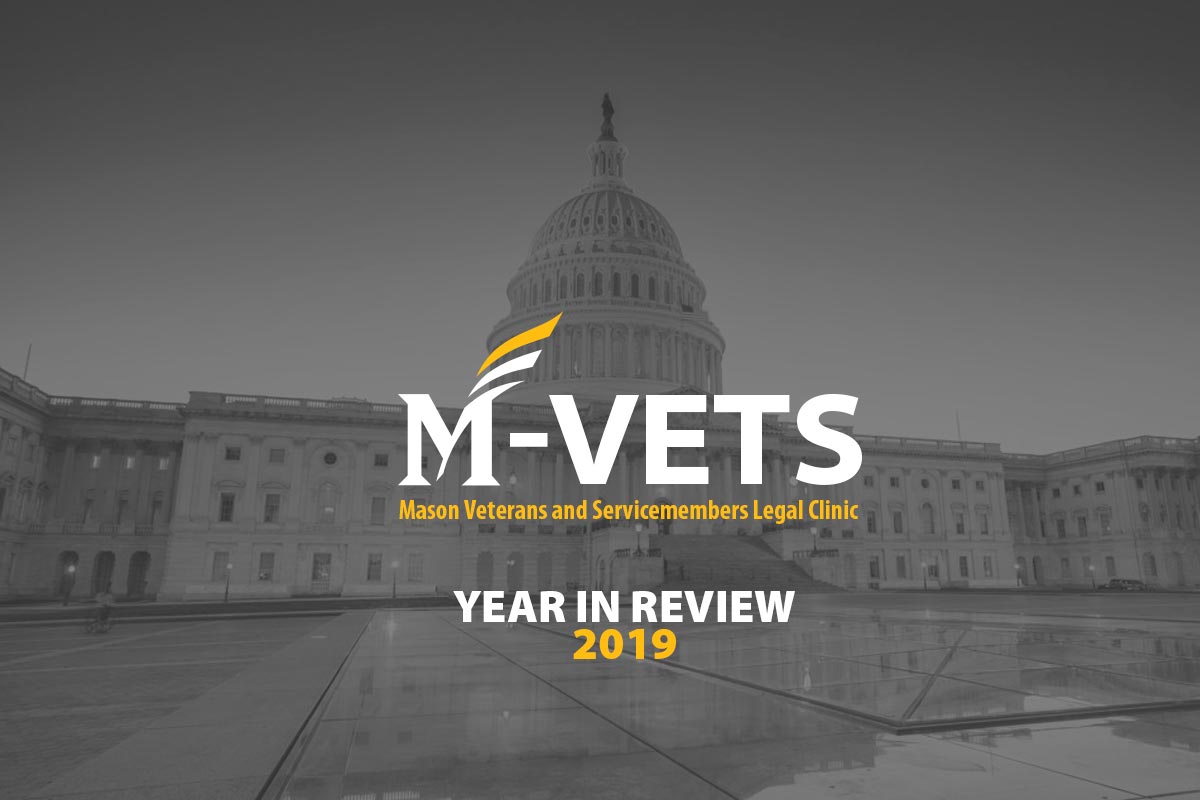Exciting developments, successful case outcomes, and honoring our alums highlighted 2019 for the Mason Veterans and Servicemembers Legal Clinic (“M-VETS”). Through the hard work of 17 Student Advisors, M-VETS provided a total of over 3,500 hours of client and clinic work, providing the private market value equivalent of nearly $400,000 in pro bono legal services to the military community. In an effort to expand that impact, M-VETS entered the planning phase of a partnership with American Legion Post 139 to provide legal services in its new headquarters co-located in an affordable housing complex with dedicated units reserved for Veterans. The new location is slated for completion in the spring of 2021. Thank you to all our Student Advisors, administrative and support staff, and benefactors for your continued support of the M-VETS mission. We look forward to a productive and successful 2020!
M-VETS Spotlights Alumni Serving our Country:
Since its inception, M-VETS has served nearly 300 clients and provided the equivalent of over $3.5 million in pro bono legal services. Many of the over 150 M-VETS Student Advisors and other Scalia Law Alumni have served in our armed forces, including the JAG Corps of various military branches; while others have established careers with the Board of Veterans Appeals, Department of Defense, and other government agencies. Below, we spotlight several of these stellar Scalia Law graduates:
The Honorable Penney Azcarate: Scalia Law ’98
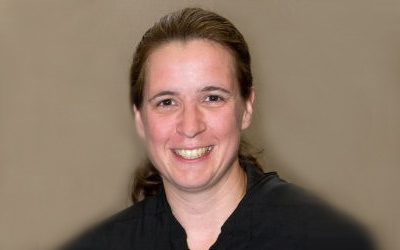
Judge Penney Azcarate is a Circuit Court Judge in Fairfax County, Virginia, with a long history of public service. After enrolling in the ROTC program at Old Dominion University, Judge Azcarate served four years active duty with the United States Marine Corps and several more in the reserves while attending law school. After graduating from George Mason, she became an assistant Commonwealth Attorney for five years before entering private practice. In 2008, Judge Azcarate was elected by the General Assembly to serve on the General District Court Bench where she became the first female Chief Judge. In 2015, Judge Azcarate was elevated to the Fairfax County Circuit Court.
Jessica O’Connell: Scalia Law ’13 (M-VETS Student Advisor 2013)
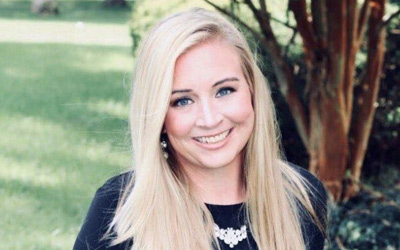
Jessica O’Connell is a Counsel at the Board of Veterans Appeals. Not only was Ms. O’Connell a former M-VETS Student Advisor, but she served as an Adjunct Professor for the program after her graduation. A 2005 graduate of the University of Connecticut with degree in political science, Ms. O’Connell attended law school after working several years as a paralegal and legal secretary for various law firms.
Army Brigadier General Joseph B. Berger III: Scalia Law ’98
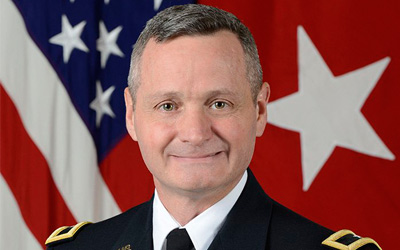
Brigadier General Joseph Berger is a 1998 alumnus of the law school. Prior to law school, Brigadier General Berger graduated from the U.S. Military Academy at West Point and was commissioned into the Military Police Corps where he served as a Platoon Leader, Company Executive Officer, and Battalion Supply Officer and Adjutant. After earning his J.D. from George Mason, he transferred to the Army’s Judge Advocate General’s Corps.
Judge Ryan T. Kessel:Scalia Law ’01
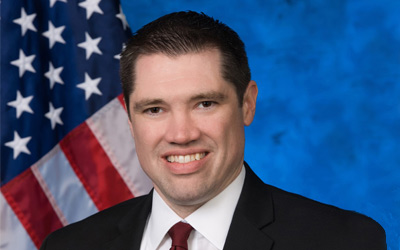
Judge Ryan Kessel is an Administrative Law Judge for the Board of Veterans Appeals (BVA). Earning his undergraduate degree from the University of Virginia in 1998 and his J.D. from the law school in 2001, Judge Kessel started his career at the BVA as an entry level counsel in 2005 after several years in private practice. In 2014, he was selected to be a Veteran’s Law Judge by the Secretary of the VA. In his role at the BVA, Judge Kessel conducts hearings and decides appeals primarily in the area of veterans benefits claims.
Colonel Drew Krog: Scalia Law ’96
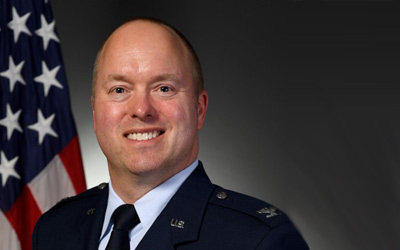
Colonel Drew Krog is an Individual Mobilization Augmentee (IMA) assigned to the Office of the Staff Judge Advocate in the Air Forces Reserves. When on active duty orders, Colonel Krog fills in for the Staff Judge Advocate in the 25th Air Force, providing advice and legal support to a two-star general. When he is not on active orders, Colonel Krog coordinates information and leadership in the reserve chain and manages information and administrative management of all IMAs in the 25th Air Force.
Commander (Ret) Coley “Rick” Myers, III: Scalia Law ’16 (M-VETS Student Advisor 2015-2016)
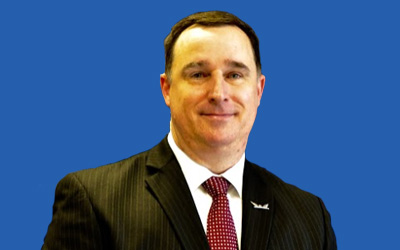
Commander (Ret) Rick Myers is a former U.S. Navy Submarine officer, with experience involving the operation and maintenance of complex engineering systems on three nuclear powered submarines and one aircraft carrier. After a 21-year career in the Navy, Mr. Myers retired and embarked on a second career in law. While at Scalia Law, he served as an M-VETS Student Advisor for three semesters and gained valuable experience assisting veterans and active duty service members in civil matters as well as veterans benefit appeals.
Army Second Lieutenant Christian “C.J.” Nee: Scalia Law ’17 (M-VETS Student Advisor 2016-2017)
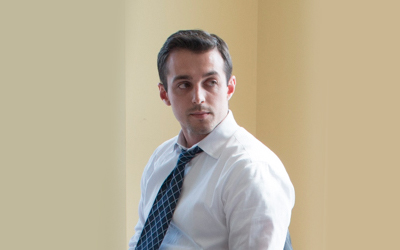
Second Lieutenant Christian “C.J.” Nee is a recent graduate of the law school and a three semester Student Advisor with M-VETS. During law school, C.J. was an evening student, working full-time during the day as a paralegal at the Department of Justice and later as a Law Clerk on the Permanent Subcommittee on Investigations for U.S. Senator Tom Carper’s Office. Prior to attending law school, C.J. graduated summa cum laude from Florida State University with a double major in Political Science and Criminal Justice and Criminology.
Milestones
M-VETS Wins $15,000.00 in Disability Compensation for Former Army Special Forces Group Non-Commissioned Officer
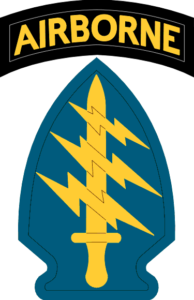
The Antonin Scalia Law School Mason Veterans and Servicemembers Legal Clinic (“M-VETS”) secured Department of Veterans Affairs (DVA) disability compensation for a former Army Special Forces Non-Commissioned officer (NCO) Engineer. M-VETS argued in a Notice of Disagreement (NOD) filed with the DVA the former Special Forces NCO was entitled to service connection and disability payments for injuries caused by military service. While the DVA had previously denied disability compensation to the veteran, they agreed with the argument made by M-VETS and reversed their original denial for disability benefits. The initial disability payment exceeded $15,000.00 with an additional monthly award of $855.00. The monthly disability payment will continue for the rest of the former NCO’s lifetime.
The M-VETS client was a former member of an Army Special Forces Group while on active duty and in the Maryland National Guard. Notably, while on active duty the Special Forces Group NCO deployed to Iraq and Jordan on multiple occasions. Special Forces soldiers are trained to carry out complex missions including counterterrorism operations, guerrilla warfare, and efforts to train foreign fighters.
“I cannot express enough how grateful I am for the help of M-VETS. I didn’t think I would ever see this successfully resolved. GMU M-VETS made it happen. No question. Please accept my sincerest thanks,” said the Special Forces veteran. “For the sacrifices our client made in the military, I am really pleased with the outcome M-VETS was able to secure,” Timothy MacArthur, M-VETS Director said. “To serve as a soldier with Army Special Forces, with multiple overseas combat deployments, it is very challenging work which requires those soldiers to place other interests before their own. The fact that we were able to pursue our clients’ legal needs first hopefully paid a little bit of the debt we owe back to this veteran,” MacArthur said.
M-VETS mission is to provide free legal representation to active-duty members of the armed forces, veterans, and their families while offering law students the opportunity to receive supervised, practical legal experience by advocating for those who serve or have served in our United States armed forces. M-VETS provides representation in a variety of matters including Virginia civil litigation matters, uncontested divorces, consumer protection matters, wills and powers of attorney, as well as assisting with matters before the VA and various administrative boards, including discharge upgrades, record corrections, military pay and entitlement matters, and VA disability benefit appeals.
M-VETS Prevails for Iraq Combat Veteran at Board of Veterans’ Appeals Hearing Securing $22,000 in Reimbursement for Post 9/11 GI Bill Payments

A 2014 claim for Post 9/11 GI Bill (“GI Bill”) benefits was finally granted at the 100% payment rate after nearly five years of litigation with the Department of Veterans Affairs (DVA). M-VETS successfully argued at a personal appearance hearing before the Board of Veterans’ Appeals (BVA) in D.C. for its client to receive GI Bill benefits at the 100% payment rate.
M-VETS represented a veteran who was medically retired from the United States Army due to service-connected disabilities sustained as a result of combat service in Iraq. The veteran was a member of the Virginia National Guard who mobilized and deployed to Iraq to serve as a linguist with a Special Forces Group from Fort Bragg, North Carolina.
While serving in Iraq, the veteran was physically and psychologically injured. The veteran returned to the United States and was placed on active duty medical hold while receiving treatment for the service-connected injuries. Subsequently, the veteran was referred to the Army Medical and Physical Evaluation Boards that found the veteran’s service-connected medical conditions rendered the veteran unable to further serve in the Army. The veteran was honorably discharged from active duty and permanently retired from the Army due to the service-connected disabilities.
Following the medical retirement from the Army, the veteran applied for educational benefits under the GI Bill and initially received a Certificate of Eligibility (“COE”) from the DVA for the receipt of benefits at the 100% payment rate. With this COE in-hand, the veteran was accepted admitted to a university outside of the United States and began attending classes. When the DVA received notice of the veteran’s enrollment at the university, the DVA determined the COE for the GI Bill at the 100% rate was erroneously issued. The DVA claimed the veteran was only entitled to the GI Bill at the 60% rate. After receiving this decision from the DVA, the veteran was forced to pay out of pocket for a portion of the educational expenses. Subsequently, the veteran filed an appeal to this decision and contacted M-VETS.
M-VETS Director, Timothy M. MacArthur, stated about the matter: “I’m glad the veteran reached out to M-VETS and that we were able to correct this issue. There are certain active duty time requirements that a soldier needs to meet in order to be eligible for the GI Bill at a certain rate. At first glance, the requirements are relatively straight forward, but when you start looking into Army Reserve and National Guard issues coupled with a medical retirement, the answers become harder to find.”
M-VETS filed a brief before the BVA and requested a personal appearance in order to argue the matter in front of a Judge. Prior to the BVA hearing, the DVA’s position was that the veteran had not accrued enough active duty time in service to receive the GI Bill at the 100% rate. Their position was based on the fact that a portion of the veteran’s active duty time was served while on medical hold orders for treatment of service-connected injuries. M-VETS agreed with the DVA assessment of the matter but argued that a statutory exception applied in this case.
At the BVA hearing, M-VETS argued that the veteran served 30 continuous days on active duty in the Armed Forces after September 11, 2001 and was discharged for a service-connected disability. As such, the veteran was entitled to GI Bill benefits at the 100% rate pursuant to 38 U.S.C.A. §3311(b)(2) and 38 U.S.C.A. §3313(c)(1).
Due to the lengthy process involved with litigating this issue, many M-VETS Student-Advisors (SAs) worked diligently on this matter while in the clinic. When the matter was scheduled for hearing in D.C., it was former M-VETS SA Curt Orshoski who argued the motion before the BVA. “Curt did a great job arguing the motion and presenting evidence during the hearing. Our client was able to fly to the United States to attend the hearing and Curt conducted an opening statement, direct examination, and a closing argument which greatly assisted the Judge in determining the favorable outcome for our client,” MacArthur said. “The DVA benefits process is paternalistic in nature which is invaluable for allowing our students to gain practical experience in a non-adversarial setting,” MacArthur continued. “This was a long process and fortunately our client was able to weather the storm financially to see this through. Going to school is expensive and our client received $22,285.52 from the DVA for reimbursement of out of pocket expenses for tuition. Our veteran should not have to pay another dime for educational costs moving forward,” MacArthur said.
M-VETS assists veterans, servicemembers, and their dependents in a variety of civil matters, including uncontested divorces, landlord/tenant matters, consumer protection and contract disputes, as well as in military/VA administrative matters, including MEB/PEBs, discharge upgrades, Boards for Correction of Military Records and VA disability compensation appeals.
M-VETS Finalizes Stepparent Adoption for Army Veteran After Birth Mother Loses Battle with Cancer

The Mason Veterans and Servicemembers Legal Clinic assisted an Army Veteran in adopting his two adult stepchildren after their birth mother, the Veteran’s wife, passed away from a long battle with cancer. The Veteran married the girls’ mother in 2009, but several years later was himself diagnosed with a treatable form of cancer. Shortly after the Veteran’s remission, his wife was also diagnosed with cancer. The Veteran resigned his teaching position to take care of his wife full time, but despite fighting the battle for two years, his wife passed away in 2017. Though always intending to adopt his stepchildren, it became more important than ever that the Veteran do so with the passing of the children’s mother, so the Veteran and his stepchildren, now adults attending college, sought the assistance of M-VETS in legally binding their familial relationship.
With the consent of the adult stepchildren, M-VETS was able to file the Petition for Adoption, including all affidavits, proposed orders and vital statistics forms. In March of 2019, the Prince William County Circuit Court entered the Final Order of Adoption, concluding the matter favorably for the Veteran and his family. M-VETS Student Advisor Rachel Petrik worked with the Veteran beginning in the fall of 2018 and was able to bring the matter to a quick resolution through her diligence and hard work.
“In this case, we had very motivated clients and a hard working Student Advisor, which resulted in a quick resolution,” said M-VETS Deputy Director, Leigh Winstead. “Rachel did an outstanding job with the case, completing the intake assessment, engaging the clients, completing all required court filings, and receiving a Final Order of Adoption in the span of six months—a portion of which was over the law school’s winter break. Rachel worked through the break to make sure the clients’ case pushed forward,” Winstead said.
“These clients have faced so much hardship and adversity over the last several years, yet they remain positive and have found strength in time of sorrow. Their story is heartwarming and inspirational. We are just happy to be able to bring some relief and a favorable outcome to these clients after all they have endured,” said Winstead.
“Helping my wife raise her two daughters has been a joy,” said the Veteran. “Unfortunately, I had to wait until they were adults to legally adopt them. To complicate matters further, my wife passed away before both girls reached 18, plus they had foreign birth certificates.
“Rachel deftly navigated these and other obstacles to successfully process the adoptions. We have been waiting a decade for this! From my daughters and I, and on behalf of their mom, thank you for a job well done,” said the Veteran.
M-VETS mission is to provide free legal representation to active-duty members of the armed forces, veterans, and their families while offering law students the opportunity to receive supervised, practical legal experience by advocating for those who serve or have served in our United States armed forces. M-VETS provides representation in a variety of matters including Virginia civil litigation matters, uncontested divorces, consumer protection matters, wills and powers of attorney, as well as assisting with matters before the VA and various administrative boards, including discharge upgrades, record corrections, military pay and entitlement matters, and VA disability benefit appeals.
M-VETS Student Advisors Secure Favorable Settlement for Veteran in Landlord/Tenant Matter
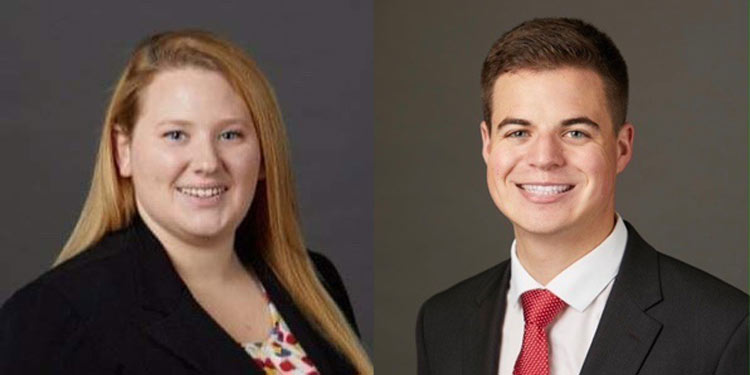
In November 2019, the Mason Veterans and Servicemembers Legal Clinic (“M-VETS”) successfully negotiated and finalized a settlement on behalf of an Air Force Veteran and his wife in connection with a Tenant’s Assertion claim filed by the couple against their former landlord. Leading up to the settlement, M-VETS student advisors Holly Kresge and Corey Pray engaged in extensive trial preparation throughout the semester, but ultimately secured a favorable settlement on behalf of their clients just weeks before trial.
“Holly and Corey did an outstanding job navigating this case through the trial prep process and ultimately reaching a favorable outcome for our clients,” Leigh Winsted, M-VETS Deputy Director said. “Both students worked diligently and professionally and gained valuable practical experience through the process,” Winstead said.
“We needed someone to help us understand the law and our rights as tenants,” said the clients. “We were guided through this process, step by step. The student advisors we were assigned were able to negotiate out of court and bring a favorable resolution. I cannot imagine what we would have done without this program!” said the clients.
M-VETS provides free legal representation to veterans, active duty servicemembers, and their families while allowing law students to gain practical legal experience under the supervision of practicing attorneys. M-VETS provides representation in a variety of matters including Virginia civil litigation matters, uncontested divorces, consumer protection matters, wills and powers of attorney, as well as assisting with matters before the VA and various administrative boards, including discharge upgrades, record corrections, military pay and entitlement matters, and VA disability benefit appeals.
Community Partnerships
A new American LEGION post will offer legal assistance for veterans with counselors from Mason’s law school
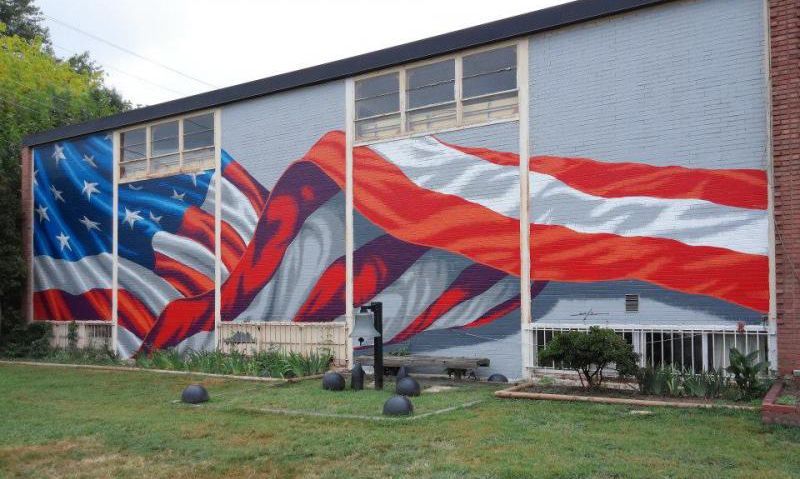
American Legion leaders are upbeat following President Trump’s signing July 30 of the LEGION Act, which will allow U.S. service members honorably discharged since the Pearl Harbor attack in 1941 to join the veterans organization.
The legislation – the acronym for which stands for “Let Everyone Get Involved in Opportunities for National Service Act” – originally was brought by U.S. Sen. Kyrsten Sinema (D-Ariz.) and had companion legislation patroned in the U.S. House of Representatives.
The new law will aid the American Legion, which has been suffering from dwindling rolls in recent years, said Bob Romano, commander of Post 139 in Arlington.
Post 139 has had difficulty recruiting members who served in the Iraq and Afghanistan wars, but the organization is taking several steps to improve that situation, he said.
The post, in collaboration with Arlington Partnership for Affordable Housing, is finalizing the sale of its building at 3445 N. Washington Blvd., which will be knocked down early next year to make way for new post facility topped by about 160 affordable-housing units, half of which will be intended for veterans. That building is stated to open in spring 2021, Romano said.
The new post will be about half the size of the current one, but will be state-of-the-art and designed to attract younger, professional members, Romano said. The post also will offer legal assistance with counselors from the George Mason University Law School and provide employment assistance for veterans who’ve just finished active duty, he said.
M-VETS Provides Support to Legal Services of Northern Virginia for Freedom Day USA Celebration in Alexandria
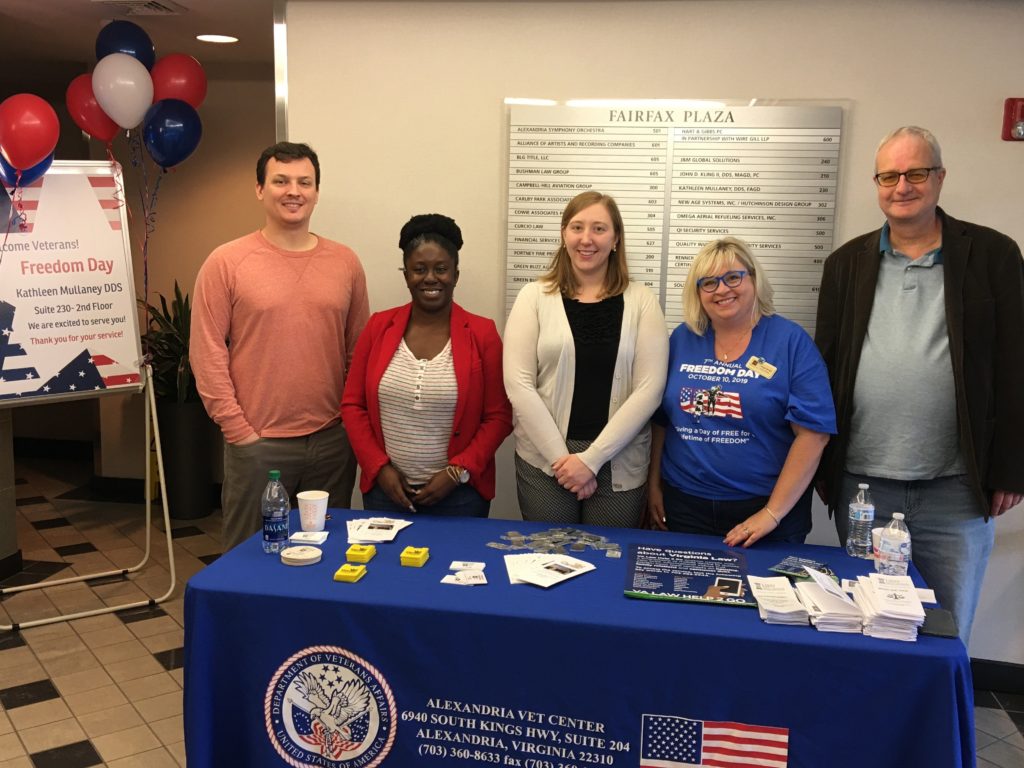
The Antonin Scalia Law School Mason Veterans and Servicemembers Legal Clinic (“M-VETS”) provided support to Legal Services of Northern Virginia (“LSNV”) during this year’s Freedom Day USA celebration. Dr. Kathleen Mullaney hosted the Freedom Day USA celebration at her dental office located in Alexandria, Virginia on 5 October 2019. M-VETS student-advisor Joshua Morrow represented Scalia Law School and the M-VETS clinic by assisting LSNV in spreading the word about the pro bono legal services provided by M-VETS and LSNV.
The Freedom Day USA celebration provides an opportunity for businesses across the United States to join a national Thank You Movement for the members of our military and their immediate families, along with Veterans. Each business participant is providing a thank you gift, in the form of free services, goods, discounts, and various other offers. This year, Dr. Mullaney provided free dental services to veterans while LSNV and M-VETS promoted their pro bono legal services for veterans during this celebration. M-VETS Director, Timothy M. MacArthur, believes outreach at functions like Freedom Day USA celebrations are essential to promoting the M-VETS clinic. “These outreach opportunities provide a valuable learning experience to the student-advisors as they are able to learn more about our client population. Also, when we provide support at an event where we know a large number of veterans will be present we are able to promote our services and help a few more veterans,” MacArthur said.
Student-Advisor Josh Morrow commented: “The event was an insightful experience to how important these pro bono services are to our Veterans. More importantly, it allowed me and members of LSNV to talk with Veterans about pending legal issues they were going through and educate them on the legal services available to them. I hope events like this become more frequent so we can help our Veterans and continue to provide information about the legal services offered by M-VETS and LSNV.”
M-VETS will continue to conduct outreach and provide information regarding the Scalia Law School to active-duty members of the armed forces, their families, and veterans. Please keep visiting our webpage to keep updated on future events.
Student Blog Highlights
The Next Medical Crisis: Drone Pilots and PTS
By Spring 2019 M-VETS Student-Advisor
When considering post-traumatic stress (PTS), the first thought that comes to mind is a veteran returning from a theatre of combat. Due to technological advances, the Department of Veteran’s Affairs (VA) must be prepared to deal with the increase of drone pilots who suffer from PTS. Historically, PTS has been an underdiagnosed condition, which has left many servicemembers without the assistance they need to recover. This blog post discusses the history of PTS and how PTS in drone pilots is a problem that the VA should address.
History of PTS
Writing for the VA, Matthew J. Friedman, MD, PhD outlines how PTS has been a noticeable concept in literature since Shakespeare’s Henry IV. Friedman discusses how the originators of the PTS diagnoses (then called PTSD), considered occasions like “war, torture, rape, the Nazi Holocaust, the atomic bombings of Hiroshima and Nagasaki, natural disasters, and human-made disasters” to be triggers for PTS. The originators clearly separated these triggers from other stressors such as “divorce, failure, rejection, serious illness, financial reverses, and the like.”
Despite the fact that the originators considered events like Hiroshima and Nagasaki to be triggers for PTS, and common symptoms have been discussed at least as early as Shakespeare, it was not until the Vietnam War that the United States began paying attention to the condition. In 1952, the American Psychiatric Association categorized combat stress as a “gross stress reaction.” However, “combat stress” disappeared from the APA’s list of conditions in 1968. The lack of urgency with which the medical profession considered the mental effects of PTS shows that it was not taken as seriously as it should have been.
In 1980, the APA formally recognized PTS as an anxiety disorder. Vietnam veterans are one of the more studied groups of veterans suffering from PTS. Common symptoms that they suffer are “combat flashbacks, intense memories or recurrent dreams of the traumatic event, or the feeling that the stressor is reoccurring.” Further symptoms that are indicative of PTS are a lack of “responsiveness to the outside world evidenced by diminished interest in significant activities, feelings of detachment or estrangement, or repressed emotions.” Lastly, veterans commonly report feeling at least two of the following symptoms “hyperalertness, sleep disturbance, survivor guilt, memory impairment, avoidance of activities reminiscent of the trauma, and intensification of symptoms after exposure to stimulia resembling the stressor.”
Vietnam veterans have described which lead to them reliving events that took place during their deployment. The flashbacks vary in their length and can occur years after the stressor occurred.
Current Issue with Drone Pilots
Current service members must now confront a new medical issue, and it is not one that should take years for the medical community to address. Specifically, today’s servicemembers face the stigma of conducting warfare behind a computer screen from hundreds – if not thousands – of miles away from the theatre of war. While a drone pilot may not fear that their life is in danger, it has been shown that they have “significant incidence rates for several psychiatric disorders, including PTSD.”
Rachel Martin reported for NPR that seventeen percent of active duty drone pilots are “clinically distressed,” and twenty-nine percent report a lesser level of burnout and fatigue that does not rise to the level of affecting their work and family. A 2013 study showed that drone pilots are as susceptible to PTS at the same rate as pilots who fly in aircraft. Although drone pilots who suffer from PTS are outnumbered by servicemembers who serve in traditional combat roles, it is important to remember that warfare is constantly evolving. The evolution of warfare requires a corresponding battle against the societal effects of PTS. Like the war that caused it, each battle against PTS is unique and necessitates its own approach. Rather than take years to address the issue as was done in the past, the VA should take proactive steps to aid drone pilots rather than allow them to suffer like the Vietnam War servicemembers.
Proposal/Conclusion
The current method for diagnosing PTS is too complex. The VA should make the service-connection process of PTS a three-pronged test. In Sarah Mayes’s article, Unraveling the PTSD Paradox: A Proposal to Simplify the Adjudication of Claims for Service Connection for Posttraumatic Stress Disorder, she recommends writing the test as “(1) current diagnosis, (2) incurrence in service, and (3) nexus” Mayes argues that this is beneficial because it will not only offer immediate benefits to the decisions of current PTS claims, but will help streamline the process and make the VA better prepared for the future since there will not be as many factors to consider. This is a good first step to assist drone pilots with PTS claims.
The United States realized too late that the burden of Vietnam servicemembers, who are suffering from PTS, required treatment. Although the stigma of PTS is still pervasive, the willingness of the medical community to help the Vietnam servicemembers heal has gone a long way to improving the situation. This willingness has resulted in a slow growth in sympathy for servicemembers suffering from PTS. To better be prepared for an increase in PTS claims from drone pilots and to quickly curb the stigma that drone pilots should not have PTS because they were not physically in danger, the VA should take steps to streamline the application process and raise awareness about the budding problem.
Procopio v. Wilkie: Finally a Win for Blue Water Vietnam Veterans?
By Spring 2019 M-VETS Student-Advisor Katie Stegmuller
Between 1961 and 1971, more than 20 million gallons of herbicides including Agent Orange were sprayed over Vietnam, Cambodia, and Laos. The Agent Orange Act extends a presumption of service connection for disabilities that are positively associated with herbicide exposure to veterans who served in the Republic of Vietnam during the Vietnam Era.
The Procopio v. Wilkie decision rested on the plain meaning of Congress’s words in the Agent Orange Act, specifically “the Republic of Vietnam.” According to international law, “the Republic of Vietnam” includes the territorial waters within twelve nautical miles of the coast. This reasoning convinced most of the judges; however, Procopio’s lawyers alternatively argued that the pro-claimant canon would result in granting the presumption of service connection. The dissenting judge in Procopio believes the language of the Agent Orange Act is ambiguous and that stare decisis should preserve the Haas v. Peake precedent, which denies veterans benefits if they cannot prove that they either stepped foot on land in Vietnam or traveled through its inland waters. The dissenting judge also factored in Congress’s current legislative action on the issue in his opinion and emphasized the projected costs of extending disability benefits to Blue Water veterans.
The DOJ (on behalf of the VA) originally had 90 days to appeal the Procopio decision to the Supreme Court. The Supreme Court granted the DOJ a 30 day extension to appeal. Secretary Wilkie testified on March 26 before the Senate Veterans’ Affairs Committee and said that the VA would not appeal the Procopio decision. Secretary Wilkie also recommended that the DOJ not challenge Procopio.
Congressional Response
Congresswoman Elaine Luria, Chair of the Subcommittee on Disability Assistance and Memorial Affairs, has been trying since February 2019 to get an update from Secretary Wilkie on how benefits will be extended to Blue Water Veterans. Congresswomen Luria stated, “Blue Water Navy Veterans have spent decades wondering if they will get benefits for diseases related to herbicide exposure during their service in the Vietnam War. They deserve clarity, and it’s inexcusable that they must wait another minute for an answer from the government.”
The Blue Water Navy Vietnam Veterans Act was approved 410-0 this past Tuesday. Representative Phil Roe of Tennessee stated, “We need to get it to the Senate and I believe the chairman and I would like to challenge the Senate to start hearing this and perhaps vote on it before Memorial Day. I think that would be the right thing to do.” A similar bill passed the House last year but Senators Mike Enzi (R-Wyo.) and Mike Lee (R-Utah) opposed it.
The Congressional Budget Office (CBO) has just released cost estimates for the Blue Water Navy Vietnam Veterans Act. Some important things to note are that the CBO can only base its projections off the information that the VA can provide to them, and the VA itself only has projections to provide to the CBO. The CBO estimates should therefore be read with these considerations in mind. The CBO has previously estimated that enacting the bill would cost $1.2 billion, while the VA estimated it would cost 45.5 billion. Moreover, note that the Blue Water Navy Vietnam Veterans Act provides for other benefits and programs not contemplated by the Procopio decision. The American Legion has stated, “Congress should enact into law the broadest definition possible and provide clarity and guidance for the expected VA regulations implementing Procopio. Together, we can put this issue to rest once and for all. Our veterans and families deserve no less.”
